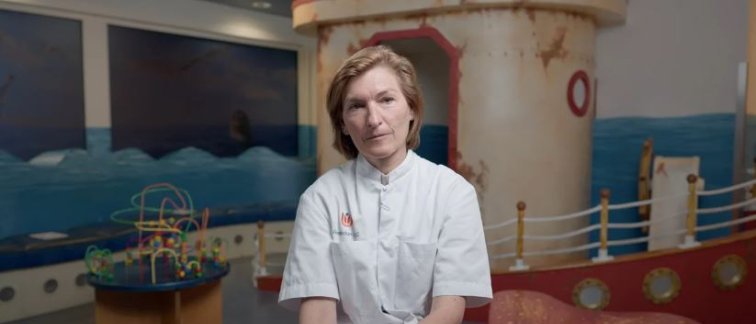Scientists at Amsterdam UMC are working on new forms of research that can reduce animal testing. They are doing this through the Transition animal-free innovations Amsterdam (Transitie Proefdiervrije Innovaties, TPI Amsterdam) initiative. Dasja Pajkrt, Professor of Viral Pediatric Infectious Diseases, develops brain organoids in the lab to study the effect of viruses on the brain.
Prof. Pajkrt: “My drive has always been to translate what I see in children to science and to develop new, better treatments.
There are a couple of viruses that I focus on: HIV, cytomegalovirus and picornaviruses. These viruses elicit severe brain diseases. What I would like is to reduce the time between the design or the development of a new drug and the moment you can use it in practice to help children. And I sincerely believe that with the use of human organoids we can reduce that time. That is my driving focus.
On average, developing new treatments or drugs for children takes ten years. Far too long. And the reason for that, in my opinion, is that before drugs are being approved for children they need to go through several phases. One of these phases is animal testing. In my opinion, as a virus specialist, it does not make sense to use animal models. Because we feel that the predictive value of organoid based results (organoids are simplified versions of human organs made in the lab) to the patients are much higher than animal models. To simplify, if my results are good in an organoid model, I trust that these results will also be the same in a child. If only I could increase the velocity of new drugs that are being developed in the lab to the patient, it is going to save lives, for sure.”
Visit the website of Transition animal-free innovations Amsterdam for more information.
Get to know Prof. Dasja Pajkrt and her research projects even better by reading our previously published articles:
- Dormant cytomegalovirus (CMV) can lead to deafness in children (December 2022)
- Dasja Pajkrt has been appointed member of the UvA Senate (October 2022)

